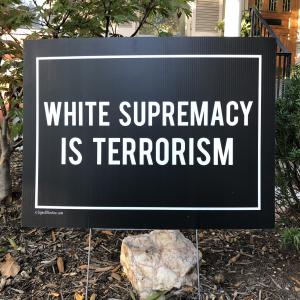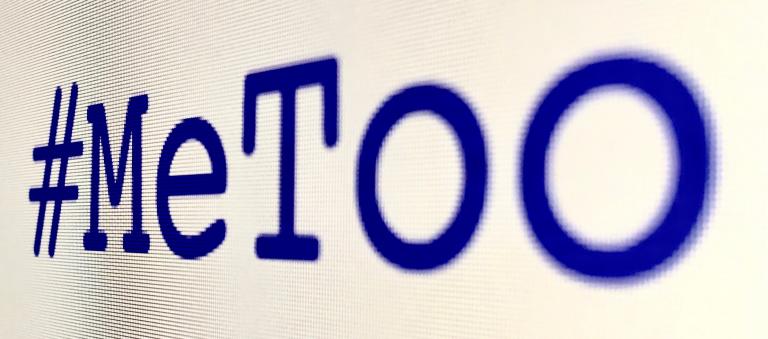This is the second in a four part series from Dr. Christopher Stroop, a self identified “ex-Evangelical” who seeks “to foster community for those harmed by and alienated from conservative religious communities.” The posts in this series come from his post “Educated Evangelicals, Academic Achievement, and Trumpism: On the Tensions in Valuing Education in an Anti-Intellectual Subculture” first published on his blog. We thank Dr. Stroop for allowing us to publish it here on R3.
second in a four part series from Dr. Christopher Stroop, a self identified “ex-Evangelical” who seeks “to foster community for those harmed by and alienated from conservative religious communities.” The posts in this series come from his post “Educated Evangelicals, Academic Achievement, and Trumpism: On the Tensions in Valuing Education in an Anti-Intellectual Subculture” first published on his blog. We thank Dr. Stroop for allowing us to publish it here on R3.
by Christopher Stroop
“…and we take captive every thought to make it obedient to Christ.” – from 2 Corinthians 10:5 (NIV).
I grew up with my parents and relatives frequently telling me I was smart. They expected great things of me, speculated I would become some sort of scientist or inventor. Indeed, I was a precocious kid, speaking in complete sentences when I was two. It wasn’t too long after that age, still in the first half of the 1980s, that one of my dad’s favorites stories about little me occurred. We were in a department store, and I asked him if I could have a toy car that cost a dollar, but which he deemed cheaply manufactured and not worth the price. Disappointed, I bided my time and, 10 or 15 minutes later, when we were in a completely different part of the store, I asked Dad, “What’s the most money you can think of?” Not suspecting I was still thinking about the toy car, he answered, “Oh, a million, maybe a billion dollars,” and I immediately followed up with, “Now does one little dollar sound like much?” He bought me the toy car.
As this vignette illustrates, my family members can admire and encourage intelligence. They also value education. Both my parents have master’s degrees from Ball State University. They were both in the first generation from their families to get college degrees, making me part of the second generation to go at a traditional age (my maternal grandmother did get a degree as an adult; she then became an elementary school teacher). My dad likes to brag that with my Ph.D. from Stanford I’ve “taken it to a whole new level.”
Nevertheless, in my childhood my parents also provided me with young earth creationist literature; exposed me to frequent urgent insistence that abortion is a literal holocaust, so we must stop the baby-killing liberals; exposed me to the teaching that sexual orientation is definitely a choice, and certainly never provided the slightest hint that they might question that pernicious notion; seemingly expected that the rapture could occur any day now; and taught me to interpret the Bible essentially literally–which frankly struck no small amount of terror into my highly sensitive young heart. As I’ve written elsewhere:
My early childhood was marked by episodes of abject terror over whether I was “really saved.” In my teen years, I wondered whether Calvinism were true and whether I might be part of the predestined reprobate. Later in high school, I moved on to thinking I had committed the unpardonable sin, walking around with a palpable lump of anxiety in my chest for about a week because I had failed to keep a promise to God to stop masturbating.
You could say I got some mixed messages growing up. One message I consistently got was that it was absolutely essential to do God’s will. My need to be certain that I was doing God’s will was at times so paralyzing that I would stand in front of my dresser wondering which pair of socks God might want me to wear that day. And then there was that other terrifying message taken from the apostle Paul–to “take captive every thought” in order to make sure it was pure and properly Christian. Given that I was already inclined to introspection, you can bet that one did a number on me.
However, another message I consistently got was that I was going to go to college and probably get a full ride academic scholarship. And so, after graduating from an ideologically driven Christian high school, I did. I looked at a few schools, including Evangelical colleges, whose required “lifestyle statements” (yes really, Google it) I already found infantilizing and invasive enough to rule them out. And I ultimately went to my parents’ alma mater, where I received the Whitinger Scholarship, won best undergraduate paper in one of the History Department’s Student History Conferences, and even won the Provost’s Prize for outstanding graduating senior in 2003.
Meanwhile, I voted for George W. Bush in 2000, despite serious misgivings and ambivalence, “because abortion”; tried to argue with professors that if there were credible historical witnesses to miraculous occurrences, then we could be confident miracles did indeed occur; embarrassed myself in far too many attempts to defend young earth creationism because I accepted Ken Ham’s argument that Christianity falls apart without taking the accounts of creation and the fall literally.
In general I fought hard, but slowly failed, to hold on to my Evangelical faith. For me, giving up that faith was ultimately the only way to be able to live with myself while beginning to resolve the cognitive dissonance that resulted from growing up taught both to value authentic intellectual inquiry and achievement and to defend #ChristianAltFacts at all costs–indeed, in some cases potentially on pain of eternal conscious torture in hell if I rejected these “alternative facts.”
Speaking of living with myself, I was only just able to do so. Suicidal ideation was a frequent visitor during my college years, and well into my twenties I would often think of myself as “an impossible person who shouldn’t exist.” Someone raised by a loving Christian family wasn’t supposed to change beliefs and politics. I felt like a traitor and was torn up with guilt, which I now realize were responses programmed into me through my indoctrination in the toxic, authoritarian ideology of Evangelicalism. My youth, spent in absolutely unnecessary existential crises, was stolen from me, and none of it was my fault (and if you’re reading this and struggling with similar issues, as you may need to hear, it is not your fault either).
In fact, the suicidal ideation started earlier, as did my crisis of faith. Ever since my childhood I’d had a strong sense of self and of being “different.” This went along with a sense of being uncomfortable in my own skin, as the acceptable ways in which one can be different are highly circumscribed in the conformist conservative Evangelical subculture. Meanwhile, when I was 16, I read the entire Bible through for myself, and that was the beginning of the end of my ability to hold on to the Evangelical belief in Biblical inerrancy, and of a crisis of faith that only really began to feel properly resolved much later, in my 30s, when I realized I’m queer.
Back in those teenage years, I found some solace in alternative rock, the authenticity of which stood in sharp contrast to the glibness of most “contemporary Christian music,” as our enclave community’s parallel music industry is known. In my doubting teenage angst, one of the tracks I played over and over–I am confident my parents did not know this–was “Suicidal Dream” from Australian band Silverchair’s 1995 album Frogstomp (along with “Shade”). I knew something was “off.” Spiritual abuse programmed me to blame myself, but somehow I ultimately could not authentically and in good conscience give up my doubts.
The cognitive dissonance went back further. While I did indeed have young earth creationist literature and apologetics books growing up, I also had a subscription to Ranger Rick Magazine, an annually renewed gift from my maternal grandma–the one who went back to school as an adult and became a fourth-grade public school teacher. Her generation’s Christianity, in my family at least, was much more moderate than that of the next generation. Through Ranger Rick, an excellent publication for children from the National Wildlife Federation, I learned about environmentalism and evolution. I learned about the latter as well from an old natural history textbook that had once been my mom’s, and which I found fascinating, though I eventually learned that some of the information in it was dated. (Thanks, Robert T. Bakker! I’ll take you over Jim Bakker any day.)
There was also a more distant relative who would teach me fascinating things about carnivorous plants, meteor showers, and dinosaurs, and who always told me that they lived tens and hundreds of millions of years ago, even though I knew I was supposed to believe that the earth was 6000-10000 years old. In Christianese, all of this “planted seeds,” I’m sure. And yet I couldn’t fully give up on young earth creationism until well into college, and then only in conjunction with severe existential crisis. The extent of identity loss that goes along with losing fundamentalist faith is something I think few if any who have not lived it can really understand.
Dr. Christopher Stroop graduated from Stanford University with a Ph.D. in Modern Russian History and Interdisciplinary Studies in the Humanities. In addition to being a scholar, he is a freelance writer, public speaker, and commentator on religion and politics, the US Christian Right, Russia, and foreign policy. He is currently a Provost’s Postdoctoral Scholar at the University of South Florida, where he teaches an upper-level 19th-century Europe survey in the History Department and an interdisciplinary Russian Studies course in the Honors College. He blogs at chrisstroop.com . You can also follow him on Twitter @C_Stroop.
Donate to the Work of R3
Like the work we do at Rhetoric Race and Religion? Please consider helping us continue to do this work. All donations are tax-deductible through Gifts of Life Ministries/G’Life Outreach, a 501(c)(3) tax exempt organization, and our fiscal sponsor. Any donation helps. Just click here to support our work












